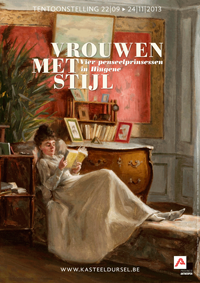
Sometimes you accidentally come across a book that has strange parallels with your own life. I recently bumped into just such a novel by author Claire Messud, which has had me completely enthralled. Born in Connecticut in 1966, the same year I was born, Messud grew up in the United States, Australia, and Canada, returning to the United States as a teenager. Daughter of a Canadian mother and an Algerian French father, she attended both Yale and Cambridge. I did not look for any information about Messud until after finishing the book, but the entire time, I knew she must have had an international upbringing, because she knows exactly what it feels like to be a foreigner, an immigrant, whether invisible or not, and brings the feeling out in her writing and her characters incredibly well.
The Last Life, published in 1999, is the story of three generations of French Algerians, told mainly through the eyes of Sagesse, who through most of the novel, is a teenage girl growing up in a city on the French Mediterranean coast in the late 1980s. She lives with her father, a French Algerian, her mother, an American, and her handicapped brother, in close proximity to the hotel owned and operated by her father’s parents. I lived in France for a year in the late 80s and much of the current events of that time and general description of the society Messud shares with us rang very true for me.
I was initially attracted to the book by the idea of what it was like to grow up as a teenager in Europe having an American mother – thinking of my own children and especially my oldest, who is now 16. The relationship between Sagesse and her mother, and especially the way her mother tries to fit in with the French in-laws and ultimately gives up, really spoke to me. I could relate to many of the attempts to blend in, to not rock the boat, and how you realize at a certain point that none of your efforts have really been appreciated, and all you have managed to do in the end is make yourself disappear.
Sagesse at one point spends a summer visiting family in Boston, and it was fascinating to me to read about her feeling of being foreign in American society; having lived for more than 20 years out of it, I could relate to a lot of what she described. Also the teenage angst Messud writes about so poignantly is also familiar territory.
A good portion of the story takes place in Algeria in the 1950s, the years leading up to the country’s independence from France, and how the situation became very dangerous and most of the French citizens had to flee, leaving everything behind. Sagesse’s grandparents go, to the property in southern France her grandfather has purchased to build a hotel on, but her father, a young man, stubbornly stays on in Algiers to be with his dying grandmother. This part of the story is incredibly gripping, the desperation palpable. Ultimately, the experience marks her father for the rest of his life.
Sagesse’s family seems doomed, as one tragic event after another comes to haunt them. But Sagesse herself, and her mother, seem to have an invisible strength that carries them through. Is this ability to survive and carry on despite numerous setbacks, something typically American? Messud does not say. But Sagesse eventually ends up as a young woman in living in New York City, where,
I am invented and reinvented...I can appear foreign or native, exotic or
invisible, depending on my whim. I am, to different friends, American or French,
or a plausible mid-Atlantic hybrid...There is nothing real about my history, and
most of it I do not tell.
This struck me as being applicable to many children who grow up with parents from different cultures and countries – they have the ability to be chameleons if they so choose – and this can be a blessing or a curse. It makes me wonder what it will feel like for my three children, young Belgian-Americans, as they get older, and some of the children of friends who are also in similar bicultural situations. How will it play out for them? How will it feel?
I was completely enthralled by this book and enjoyed reading it, even though much of it is sad. Aside from the Algerian parts, so much of it was nostalgic for me personally. And Sagesse is a character I will not quickly forget, a young woman of flesh and blood, feeling and thought, whose story gave me so many things to consider.
The Last Life is Messud’s second book. Her debut novel, When The World Was Steady (1995), was nominated for the PEN/Faulkner Award. Her 2001 work, The Hunters, consists of two novellas, and her most recent novel, The Emperor’s Children, which is set in New York City during nine months surrounding 9/11, was long listed for the 2006 Man Booker Prize.


















